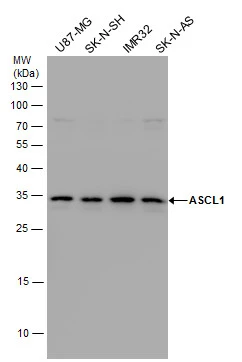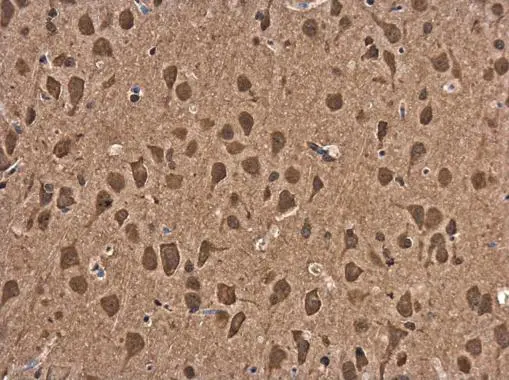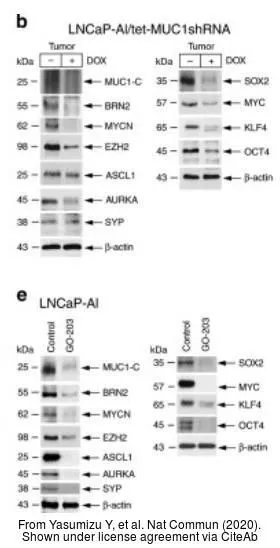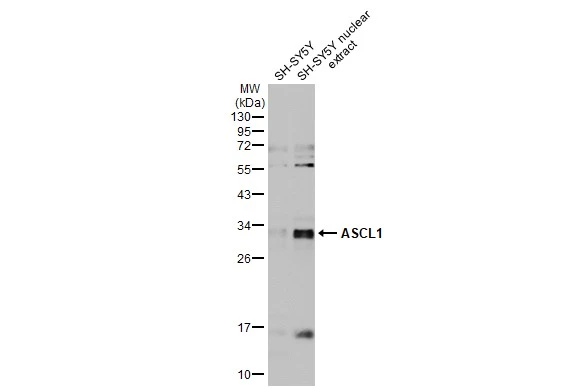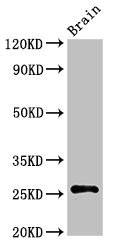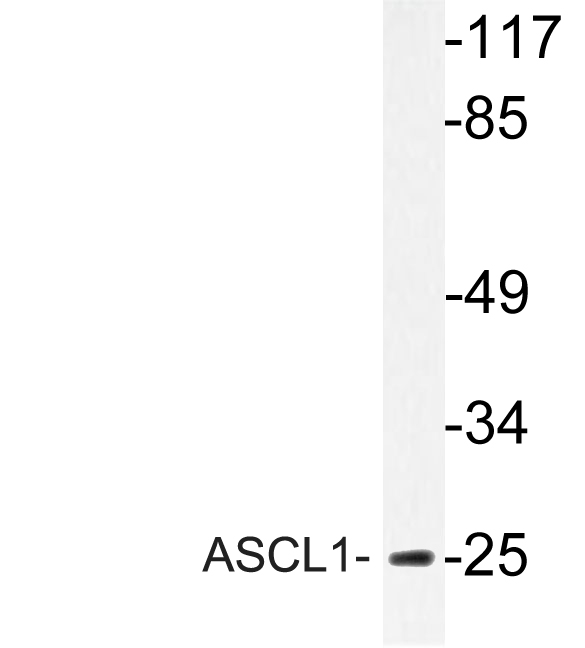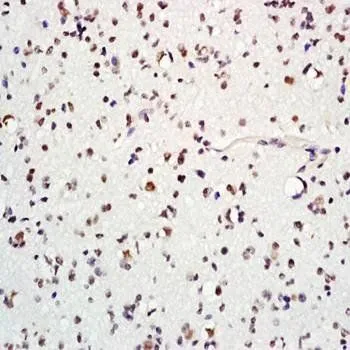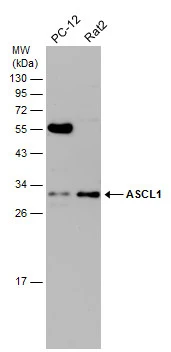
Various whole cell extracts (30 μg) were separated by 12% SDS-PAGE, and the membrane was blotted with ASCL1 antibody (GTX129189) diluted at 1:1000.
ASCL1 antibody
GTX129189
ApplicationsImmunoFluorescence, Western Blot, ImmunoCytoChemistry, ImmunoHistoChemistry, ImmunoHistoChemistry Paraffin
Product group Antibodies
ReactivityCanine, Human, Rat
TargetASCL1
Overview
- SupplierGeneTex
- Product NameASCL1 antibody
- Delivery Days Customer9
- Application Supplier NoteWB: 1:500-1:3000. ICC/IF: 1:100-1:1000. IHC-P: 1:100-1:1000. *Optimal dilutions/concentrations should be determined by the researcher.Not tested in other applications.
- ApplicationsImmunoFluorescence, Western Blot, ImmunoCytoChemistry, ImmunoHistoChemistry, ImmunoHistoChemistry Paraffin
- CertificationResearch Use Only
- ClonalityPolyclonal
- Concentration1.65 mg/ml
- ConjugateUnconjugated
- Gene ID429
- Target nameASCL1
- Target descriptionachaete-scute family bHLH transcription factor 1
- Target synonymsASH1, HASH1, MASH1, bHLHa46, achaete-scute homolog 1, ASH-1, achaete scute protein, achaete-scute complex homolog 1, achaete-scute complex-like 1, class A basic helix-loop-helix protein 46
- HostRabbit
- IsotypeIgG
- Protein IDP50553
- Protein NameAchaete-scute homolog 1
- Scientific DescriptionThis gene encodes a member of the basic helix-loop-helix (BHLH) family of transcription factors. The protein activates transcription by binding to the E box (5-CANNTG-3). Dimerization with other BHLH proteins is required for efficient DNA binding. This protein plays a role in the neuronal commitment and differentiation and in the generation of olfactory and autonomic neurons. Mutations in this gene may contribute to the congenital central hypoventilation syndrome (CCHS) phenotype in rare cases. [provided by RefSeq]
- ReactivityCanine, Human, Rat
- Storage Instruction-20°C or -80°C,2°C to 8°C
- UNSPSC41116161

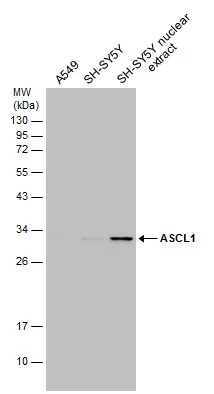
![ASCL1 antibody detects ASCL1 protein by immunofluorescent analysis. Sample: DIV9 rat E18 primary hippocampal neuron cells were fixed in 4% paraformaldehyde at RT for 15 min. Green: ASCL1 stained by ASCL1 antibody (GTX129189) diluted at 1:500. Red: beta Tubulin 3/ Tuj1, stained by beta Tubulin 3/ Tuj1 antibody [GT11710] (GTX631836) diluted at 1:500. Blue: Fluoroshield with DAPI (GTX30920). ASCL1 antibody detects ASCL1 protein by immunofluorescent analysis. Sample: DIV9 rat E18 primary hippocampal neuron cells were fixed in 4% paraformaldehyde at RT for 15 min. Green: ASCL1 stained by ASCL1 antibody (GTX129189) diluted at 1:500. Red: beta Tubulin 3/ Tuj1, stained by beta Tubulin 3/ Tuj1 antibody [GT11710] (GTX631836) diluted at 1:500. Blue: Fluoroshield with DAPI (GTX30920).](https://www.genetex.com/upload/website/prouct_img/normal/GTX129189/GTX129189_41661_20180613_ICC_IF_R_w_23060523_250.webp)
